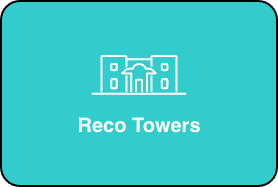What Is the Top Alumni Program for Recovery


Introduction to Recovery and Alumni Programs
Understanding the Importance of Alumni Programs in Recovery
The journey to recovery from substance use disorders is multifaceted, encompassing not only the initial steps toward sobriety but also the continuous support needed to maintain it. This is where the significance of alumni programs in recovery becomes evident. Alumni programs are essential in fostering a supportive community that encourages ongoing engagement, personal growth, and sobriety maintenance. By participating in these programs, individuals are not left to navigate the complexities of sobriety alone, instead, they are surrounded by peers who understand their experience and offer support. Such programs offer a variety of resources, including group meetings, social events, and one-on-one mentorship, each designed to strengthen the foundation of recovery.
The Evolution of Sober Living and Alumni Support
Over the years, the concept of sober living and alumni support has evolved significantly. Initially, sober living homes were merely places where individuals could live in a substance-free environment. However, recognizing the importance of a supportive community in achieving long-term sobriety, these homes have transformed into comprehensive recovery environments that integrate alumni support. This evolution reflects a growing understanding that recovery is a lifelong process requiring ongoing engagement. Today, the best sober living programs, like RECO Institute’s alumni program, incorporate structured alumni support to help individuals transition smoothly from treatment to independent sober living, thereby reinforcing their recovery journey.
Key Components of Effective Alumni Programs
Effective alumni programs are characterized by several key components that collectively support individuals in their recovery journey. Firstly, such programs offer access to a broad network of peers and mentors who have navigated similar challenges, providing invaluable support and guidance. Secondly, they offer regular social events and meetings, facilitating a sense of community and belonging. Thirdly, they include educational opportunities that enable individuals to continue learning about addiction and recovery, empowering them to stay on their path. Additionally, effective programs provide avenues for alumni to give back, such as through mentorship roles, fostering a culture of support and reciprocity within the recovery community.
Unveiling RECO Institute’s Premier Alumni Program
Overview of RECO Institute’s Recovery Offerings
RECO Institute, nestled in the vibrant community of Delray Beach, Florida, has established a reputation for excellence in providing transitional sober living arrangements as a cornerstone of the broader RECO Intensive Addiction Treatment Program. The institute’s comprehensive approach to recovery encompasses not only cutting-edge clinical treatment plans but also extends to a multi-faceted alumni program, designed to engage and support individuals on their continued path to sobriety. At RECO Institute, the journey to recovery is understood as a holistic process where clinical interventions are complemented by a supportive sober living environment, peer support networks, and proactive alumni activities.
By focusing on the seamless integration of treatment modalities with supportive living environments, the RECO Institute ensures that each participant is equipped with the tools, resources, and community support needed to sustain their sobriety. This comprehensive offering underscores the importance of not just achieving sobriety but maintaining it through active engagement, continuous learning, and mutual support.
The Pillars of RECO Institute’s Alumni Program
The alumni program at RECO Institute is structured around several key pillars that collectively foster long-term recovery and personal growth. These pillars include community engagement, ongoing education, peer support, and alumni mentorship.
Firstly, the emphasis on community engagement through organized social events and activities helps keep alumni connected to their recovery community, reinforcing a sense of belonging and shared purpose. Whether it’s through alumni activities like camping trips or attending local events together, these activities offer a safe space for fun and fellowship without the presence of substances.
Ongoing education serves as another critical pillar, providing alumni with continuous learning opportunities about various aspects of addiction, mental health, and wellness. This aspect of the program ensures that alumni are well-informed about the latest research and strategies for maintaining sobriety and overall well-being.
Peer support, facilitated by regular meetings and one-on-one check-ins, ensures that alumni have access to a network of individuals who understand their journey and can offer empathy, advice, and encouragement. This network is further bolstered by the institute’s alumni mentorship in the recovery initiative, where more experienced alumni guide newer members, creating a culture of reciprocity and mutual growth.
Alumni Success Stories: A Testament to Effective Recovery
The effectiveness of RECO Institute’s alumni program is highlighted through numerous success stories, where individuals attribute their sustained sobriety and personal achievements to the support and resources they received as part of the alumni network. These stories are not just a testament to the individuals’ resilience and determination but also underscore the critical role that a well-structured alumni program plays in facilitating long-term recovery.
Engaging sober living success stories, shared through various platforms, including the institute’s website and social media channels, serve as powerful reminders of what is possible when recovery is supported by a comprehensive and caring community. These narratives shed light on the transformative impact of RECO Institute’s alumni program, blending personal anecdotes with broader insights into the recovery process.
Moreover, these success stories offer hope and inspiration to others on their recovery journey, illustrating how sustained engagement with a supportive alumni network can lead to meaningful change and empowerment beyond the confines of rehab. Through these stories, RECO Institute continues to champion the cause of recovery, demonstrating unequivocally that with the right support and resources, a life of sobriety and fulfillment is within reach.
Benefits of Joining a Sober Living Alumni Program
Maintaining Sobriety with Alumni Support
Alumni programs play a pivotal role in maintaining sobriety after rehab, offering a layered support system that extends beyond the structured environment of residential treatment. These programs provide continuous, relatable support from peers who have traversed a similar path, creating an invaluable resource for individuals navigating the complexities of life post-rehabilitation. Through regular meetings, shared experiences, and mutual encouragement, alumni support in recovery becomes a cornerstone for those seeking to solidify their journey toward sustained sobriety.
Moreover, access to alumni networks offers fresh perspectives and coping strategies that can be crucial during challenging times. It ensures that individuals do not feel isolated in their struggles, promoting a sense of accountability and motivation crucial for long-term recovery. The collective wisdom and shared stories within these networks inspire individuals to persevere, reminding them that recovery is not only possible but also enriching and fulfilling.
How Alumni Programs Enhance Recovery Experience
The integration of alumni programs into the recovery experience significantly enhances the quality and depth of the recovery journey. By fostering a proactive approach to sobriety, these programs equip individuals with the tools and resources necessary for personal growth and development post-rehab. This includes opportunities for leadership, volunteering, and engaging in sober activities that reinforce life skills and confidence.
The involvement in alumni activities also offers a seamless transition from the structured environment of rehab to the broader community, allowing individuals to practice their newfound skills in real-world settings. This hands-on approach to post-rehabilitation support ensures that the principles of sobriety are deeply ingrained and readily applicable in daily life, thereby reducing the chances of relapse.
Furthermore, the alumni programs’ focus on continuous education about addiction and recovery keeps individuals informed and vigilant. This ongoing learning process encourages alumni to stay connected with the latest research, trends, and strategies for maintaining recovery, ensuring they remain well-equipped to face the evolving challenges of sobriety.
Engaging with a Community Committed to Sobriety
Becoming part of a sober living alumni program means joining a community committed to sobriety and mutual support. This engagement with a like-minded community fosters a sense of belonging and acceptance, which is vital for anyone in recovery. The shared experiences and collective goals within the community create a strong bond among members, offering both strength and solace during difficult times.
Activities and gatherings organized by the alumni program provide safe and enjoyable opportunities for socialization without the pressures or temptations associated with substance use. Whether it’s participating in workshops, attending sober parties, or engaging in recreational outings, these experiences promote a healthy and balanced lifestyle that reinforces the decision to live sober.
Moreover, involvement in an alumni network for sober living opens up avenues for giving back and contributing positively to the recovery community. Many individuals find profound satisfaction and purpose in mentoring newcomers, sharing their success stories, and participating in initiatives that support the journey to sobriety for others. This reciprocal exchange not only strengthens the individual’s commitment to sobriety but also amplifies the collective resilience of the recovery community, making the path to long-term recovery a shared and highly rewarding endeavor.


Alumni Activities and Engagement in Recovery
The Role of Alumni Events in Sustaining Recovery
Alumni events play a crucial role in the recovery process, offering former patients a means to stay connected with their recovery community and maintain their sobriety. These events range from casual meetups, and educational workshops, to annual celebrations that commemorate individual and collective milestones in recovery. By participating in alumni events, individuals are reminded of their journey and the shared experiences that bind them to others. It creates an environment where encouragement flows freely, and the challenges of maintaining sobriety after rehab are met with understanding and support. These gatherings are not just social events but lifelines that remind alumni of the ongoing support available to them, reinforcing the commitment to a sober lifestyle.
Alumni Mentorship: Guiding Peers to Sobriety Success
Alumni mentorship in recovery is a testament to the strength and resilience of the recovery community. Mentorship involves more experienced alumni guiding newer members through their sobriety journey, offering advice, sharing experiences, and providing emotional support. This peer-led support system is invaluable for those new to sobriety, as it offers real-world insights and strategies for navigating the complexities of life post-rehabilitation. Engaging with alumni mentorship fosters a culture of giving back and mutual growth within the recovery community. It’s an acknowledgment that recovery is a continuous journey and that success in long-term recovery is bolstered by the guidance and encouragement of those who have walked the path before.
RECO Institute Alumni Community: A Source of Continuous Support
The RECO Institute Alumni Community stands out as a beacon of continuous support, offering a variety of activities and engagement opportunities tailored to foster connection, growth, and long-term sobriety. From group outings and volunteer opportunities to educational seminars and wellness activities, the alumni community at RECO Institute is designed to meet the diverse needs and interests of its members. This active engagement helps to ensure that individuals do not merely survive post-rehabilitation but thrive, finding joy and fulfillment in their sober lives. The community emphasizes the importance of maintaining a connection in sobriety, understanding that the journey of recovery does not end with treatment. By providing a structured yet flexible framework for engagement, the RECO Institute Alumni Community underscores the institute’s commitment to each individual’s success in recovery, making it a top alumni program for those seeking sustained support and a sense of belonging within the sober living community.
Transitional Housing Success Stories from RECO Institute
The Journey from Sobriety to Stable Living
The road from achieving sobriety to establishing a stable, sober lifestyle is fraught with challenges yet incredibly rewarding. Transitional housing programs, such as those offered by RECO Institute, play a pivotal role in this journey. The sober living homes and supportive environment provided by RECO serve as a bridge between intensive rehabilitation and the uncertainties of returning to daily life. Within these residences, individuals learn to navigate the complexities of sober living while benefiting from a structured, safe, and substance-free environment. These homes are not merely places to stay, they are communities where individuals can develop life skills, find support during vulnerable times, and foster independence with the oversight of experienced house managers and peer support. Such an environment is crucial in helping residents maintain their sobriety and build a foundation for a stable, sober life.
How Transitional Housing Prepares You for Long-Term Recovery
Transitional housing is designed to address the gap between inpatient treatment and real-world living, offering a structured yet flexible environment that supports long-term recovery. At RECO Institute, residents participate in group home meetings, adhere to house rules, and engage in 12-step meetings or other recovery programs, which are all integral to their rehabilitation. This unique blend of structure and independence prepares individuals for the realities of living sober by equipping them with coping strategies, relapse prevention skills, and the ability to manage daily stresses without resorting to substance use. Additionally, transitional housing instills a sense of responsibility and accountability, essential traits for individuals in recovery aspiring for long-term sobriety. By living among peers with similar goals, residents are continuously encouraged and motivated to persevere in their recovery journey, making the transition to independent living more manageable and successful.
Real-Life Success Stories: The Impact of Supportive Living Environments
The success stories emerging from RECO Institute’s transitional housing programs are both inspiring and a testament to the effectiveness of supportive living environments in recovery. Numerous alumni have shared their transformations from uncertain sobriety to flourishing in stable, sober living, attributing much of their success to the experiences and support they found within RECO’s community. These real-life success stories underscore the profound impact that a nurturing, structured environment can have on an individual’s recovery journey. Residents often speak of how the camaraderie, daily structure, and shared commitment to sobriety within the house played a pivotal role in their ability to maintain sobriety and rebuild their lives. From securing employment and furthering education to mending relationships and developing new, healthy lifestyles, the achievements of RECO Institute’s alumni highlight the indispensable role of transitional housing in fostering resilience, self-reliance, and lasting recovery.
Maintaining Connection in Sobriety Through Alumni Network
The Power of Connection in Recovery
In the realm of recovery, the power of connection cannot be overstated. It serves as the lifeblood of a successful journey toward long-term sobriety. The profound impact of shared experiences and mutual understanding that comes from being part of a recovery community fosters resilience and motivation. Connection in recovery transcends mere social interaction, it embodies the shared struggle, the collective triumphs, and the understanding that one is not alone in their journey. This notion of connection is deeply embedded in the ethos of RECO Institute’s alumni program, which prioritizes cultivating a network of support that extends far beyond the confines of traditional treatment settings. Connecting with peers who have traversed similar paths and faced comparable challenges instills a sense of belonging and provides a source of encouragement and hope.
Building Lasting Sobriety with Alumni Network Support
Building lasting sobriety requires more than just a commitment to abstaining from substance use,it necessitates a supportive framework that nurtures growth, learning, and connection. The alumni network of RECO Institute exemplifies this support system, offering a sanctuary where individuals can share their stories, celebrate their successes, and find solace during challenging times. Alumni network support is a cornerstone of maintaining sobriety after rehab, offering a range of activities and resources designed to strengthen the bonds between members and reinforce their commitment to sobriety. Through regular meetups, workshops, and social gatherings, the alumni network fosters an environment where members are continuously engaged and supported. These forums provide valuable opportunities for alumni to exchange insights, coping strategies, and encouragement, thereby fortifying their resolve and aiding them in navigating the intricacies of sober living.
The Role of the Alumni Network in Recovery Journey Support
The alumni network plays a vital role in providing ongoing recovery journey support, serving as a testament to the enduring nature of the recovery process. It underscores the idea that recovery is not a destination but a continuous journey that requires vigilance, support, and community. By integrating support mechanisms such as mentorship programs, educational seminars, and peer-led discussions, the alumni network facilitates a seamless transition from treatment to everyday life. This comprehensive approach to post-rehabilitation support ensures that alumni are well-equipped to face the challenges that arise in sobriety, from coping with triggers to managing stress and maintaining healthy relationships. Furthermore, the alumni network emphasizes the importance of giving back, encouraging members to share their experiences and wisdom with those newly embarking on their recovery journey. This reciprocal model of support not only aids in maintaining sobriety but also enriches the lives of all involved, creating a dynamic and thriving recovery community.
By leveraging the strength of the alumni network, individuals in recovery gain access to an invaluable resource that significantly enhances their ability to maintain sobriety and thrive in their new sober life. Through connection, support, and continuous engagement, the RECO Institute’s alumni program stands out as a beacon of hope and a testament to the collective power of recovery.


Post-Rehabilitation Support: Beyond the Treatment Program
Life After Sober Living Homes: What Comes Next?
Transitional phases in recovery, especially after leaving sober living homes, present unique challenges and opportunities. Transitioning from a structured sober living environment to mainstream society requires planning, support, and resilience. Life after sober living homes involves applying the life skills, sobriety principles, and coping mechanisms acquired during one’s stay. This is the time when individuals must navigate responsibilities such as employment, education, and personal relationships while maintaining their commitment to sobriety.
The journey continues with an increased level of independence, where decision-making and self-care take the forefront. However, the end of a residential stay does not signify the end of support, rather, it marks the beginning of a new chapter of recovery with its support systems and resources. Individuals who have transitioned from sober living homes often find the need to engage more actively with alumni networks, outpatient programs, and support groups that offer a continued sense of community and accountability.
The successful transition relies heavily on the establishment of a stable, sober lifestyle that includes regular engagement with the recovery community through post-rehabilitation support. This support network helps to mitigate the risks associated with isolation, ensuring individuals can navigate life’s stresses without compromising their sobriety. It involves forming new, healthy relationships, pursuing hobbies and interests in sober contexts, and potentially, becoming a mentor or support for others on their recovery journey. Thus, life after sober living homes is not about merely surviving without the substance but thriving in a transformed sober life.
Navigating Challenges Post-Rehab with Alumni Resources
The transition period immediately following rehabilitation is often described as one of the most precarious times for individuals in recovery. Facing the world, with its triggers and stressors, without the constant, immediate support of a sober living community, demands a robust support system. Alumni resources fill this gap splendidly, offering both structured and flexible support tailored to post-rehab needs.
Alumni resources encompass a wide array of tools, including access to counselors, group therapy sessions, and peer-led support groups. Moreover, these resources often include educational material and workshops designed to strengthen coping skills and relapse prevention strategies. By engaging with alumni resources, individuals can stay connected with their recovery community, maintaining that critical connection in sobriety that shields against isolation and relapse.
Beyond just support, alumni resources provide avenues for individuals to contribute back to the community, exemplifying the principle of service in recovery. Engaging in alumni activities, volunteering, or taking on mentorship roles not only enriches the individual’s recovery experience but also reinforces their commitment to sobriety. It’s a symbiotic relationship where both the giver and receiver benefit, advancing together on their journey toward long-term recovery.
Creating a Sustainable Sober Life with Post-Rehabilitation Support
Sustainability in sobriety involves more than abstaining from substance use, it requires building a life where sobriety is preserved and cherished amidst everyday challenges. Creating such a life post-rehab entails a multi-faceted approach, integrating mental, emotional, and social well-being strategies. Post-rehabilitation support, therefore, is crucial in ensuring individuals have the resources, knowledge, and community needed to sustain their recovery.
A sustainable sober life is grounded in a stable environment, one that supports recovery and shields against potential triggers. This involves choosing living situations wisely, fostering relationships that nurture sobriety, and engaging in activities that promote mental and physical health. Education and employment also play pivotal roles, offering purpose, structure, and a sense of fulfillment.
Additionally, ongoing participation in recovery programs and support groups complements personal growth efforts, providing a steady source of motivation and accountability. Access to continuing care services, whether through therapy, coaching, or wellness programs, ensures individuals can address new challenges proactively, preventing minor setbacks from escalating.
Ultimately, a sustainable sober life is an active pursuit, requiring dedication, resilience, and the willingness to seek and accept support. Post-rehabilitation support, with its focus on comprehensive well-being, empowerment, and community engagement, lays the foundation for a fulfilling, sober life journey.
Conclusion: The Path Forward with RECO Institute’s Alumni Program
Why RECO Institute’s Alumni Program Stands Out
RECO Institute’s Alumni Program shines as the top alumni program for recovery for several reasons. Its comprehensive approach goes beyond the mere provision of a sober living environment, delving deep into the essence of what it means to sustain recovery in the long term. This program stands out because of its unwavering commitment to addiction recovery alumni, emphasized through continuous education, robust community support, and an array of engaging activities. What sets RECO Institute apart is its ability to foster a sense of belonging among its members, cultivating an environment where alumni can both receive and offer support. Furthermore, the program’s adaptability in addressing the varied needs of its alumni signifies its dedication to each individual’s unique journey, making it a beacon of hope and a guidepost for those aspiring towards lasting sobriety.
Connecting the Dots: Recovery, Support, and Sustained Sobriety
The journey to sustained sobriety is a mosaic of experiences, challenges, and victories. Connecting the dots between recovery, support, and sustained sobriety entails recognizing the intrinsic value of community in this process. At RECO Institute, the emphasis on creating connections through mentorship, group activities, or shared experiences is the path to a fulfilling sober life. Connection forms the core of RECO’s philosophy, understanding that recovery thrives not in isolation, but in the shared spaces of support and mutual encouragement. This recognition of the power of connection in sobriety underlines the importance of alumni programs in creating a safety net around individuals, ensuring they have the resources and community needed to navigate their recovery journey with confidence.
Your Next Steps to Engaging with RECO Institute’s Recovery Community
Embarking on your recovery journey with RECO Institute’s Alumni Program is a step towards embracing a new chapter of life abundant with possibilities. As you contemplate your next steps, consider the myriad ways in which you can engage with this vibrant recovery community. Whether you’re seeking support in maintaining sobriety after rehab, looking for a sense of belonging, or eager to give back and help others on their journey, RECO Institute offers a range of opportunities tailored to your needs and aspirations.
To begin, visit the RECO Institute website to learn more about their alumni program, sober living options, and how you can become part of a recovery community that values your growth and sobriety. Your proactive step towards connecting with RECO’s community can mark the commencement of a transformative recovery journey filled with support, learning, and lasting connections. Remember, the path to sustained sobriety is a collaborative endeavor-one that is significantly enriched by the strength and compassion of a dedicated alumni network.
As you move forward, keep in mind that RECO Institute’s Alumni Program is not just about navigating sobriety, it’s about thriving within a community that understands and supports your goals. It’s about building durable connections that not only aid in maintaining sobriety after rehab but also contribute to a rewarding and enriched life. Your next steps with RECO Institute are not just toward recovery but towards rediscovering joy, purpose, and belonging in a life defined by sobriety and success.
Frequently Asked Questions
Question: What makes RECO Institute’s alumni program the top choice for recovery?
Answer: RECO Institute’s alumni program stands out as the top alumni program for recovery due to its comprehensive and holistic approach to post-rehabilitation support. Our focus extends beyond the traditional treatment parameters, encompassing a broad spectrum of activities, mentorship, and ongoing education designed to support our alumni in maintaining sobriety after rehab. With a strong emphasis on community support in recovery and connection in sobriety, our program ensures that alumni are not just surviving but thriving in their sober lives. Success in long-term recovery is facilitated through an ecosystem of peer support, structured sober living environments, and meaningful engagement in alumni events and activities. The RECO Institute alumni network acts as a backbone for sustaining recovery after rehab, providing a source of continuous encouragement, knowledge, and shared experiences.
Question: How does participating in sober living alumni activities benefit individuals in recovery?
Answer: Participating in sober living alumni activities offers a multitude of benefits for individuals in recovery. These activities facilitate a sense of belonging and connectivity among alumni, critical factors in the journey toward sustained sobriety. By engaging in shared experiences and mentorship opportunities, alumni can reinforce their commitment to sobriety while contributing to the recovery of others. These events serve not only as a source of enjoyment but also as a platform for exchanging coping strategies and achievements. Sober living alumni activities provide a safe space to celebrate milestones, counteract isolation, and foster a proactive lifestyle that supports recovery. Through this involvement, alumni remain connected to a supportive sober living community, gaining strength and resilience from peers who understand the nuances of maintaining sobriety after rehab.
Question: In what ways does RECO Institute ensure the continued success of its alumni after completing the program?
Answer: RECO Institute ensures the continued success of its alumni through a multi-dimensional approach that includes providing access to alumni resources for sobriety, facilitating alumni mentorship in recovery, and encouraging community support in recovery. Our dedicated alumni network serves as a crucial element in providing ongoing recovery journey support. By offering regular group meetings, educational workshops, and social gatherings, we ensure our alumni have the resources and avenues to remain actively engaged in their sober living community. Furthermore, our transitional housing success stories speak volumes about the effectiveness of our structured yet flexible post-rehabilitation support framework. By focusing on real-world applications of sobriety principles and fostering connection in sobriety, we actively prepare our alumni for life after sober living homes, equipping them with the tools needed for creating a sustainable sober life.
Question: Can you describe some specific sober living success stories from the RECO Institute?
Answer: At RECO Institute, we have been privileged to witness numerous sober living success stories that reflect the transformative impact of our program. These stories come from individuals who, through their engagement in our top alumni program for recovery, alumni support in recovery, and sober living programs, have found new meaning and purpose in life. For example, one of our alumni went from struggling with substance use disorders to becoming an inspiring leader within the sober living community, actively participating in alumni mentorship, and pursuing a career in addiction counseling. Another success story involves an individual who rebuilt their relationships with family, achieved academic success, and is now thriving in a fulfilling career, attributing their resilience and achievements to the solid foundation and continuous support received from the RECO Institute. These narratives not only showcase the efficacy of our comprehensive recovery approach but also highlight the importance of an encouraging and engaged alumni network in fostering long-term recovery success.
Question: Why is the connection in sobriety emphasized in the RECO Institute’s recovery program?
Answer: Connection in sobriety is emphasized in the RECO Institute’s recovery program because it plays a pivotal role in the overall success and sustainability of recovery. We believe that recovery thrives within the context of community and shared experiences. Connection fosters a sense of belonging, significantly reduces feelings of isolation, and boosts resilience against potential triggers and challenges. By cultivating a supportive environment where alumni can engage with peers who have faced similar struggles, we reinforce the principle that one is not alone in recovery. This sense of connection is maintained through our targeted alumni engagement in recovery initiatives, including mentorship programs, social events, and open forums for sharing stories and successes. Such an unwavering support network empowers our alumni to maintain sobriety and achieve personal growth, underscoring the long-lasting benefits of recovering together in a compassionate and understanding community.















